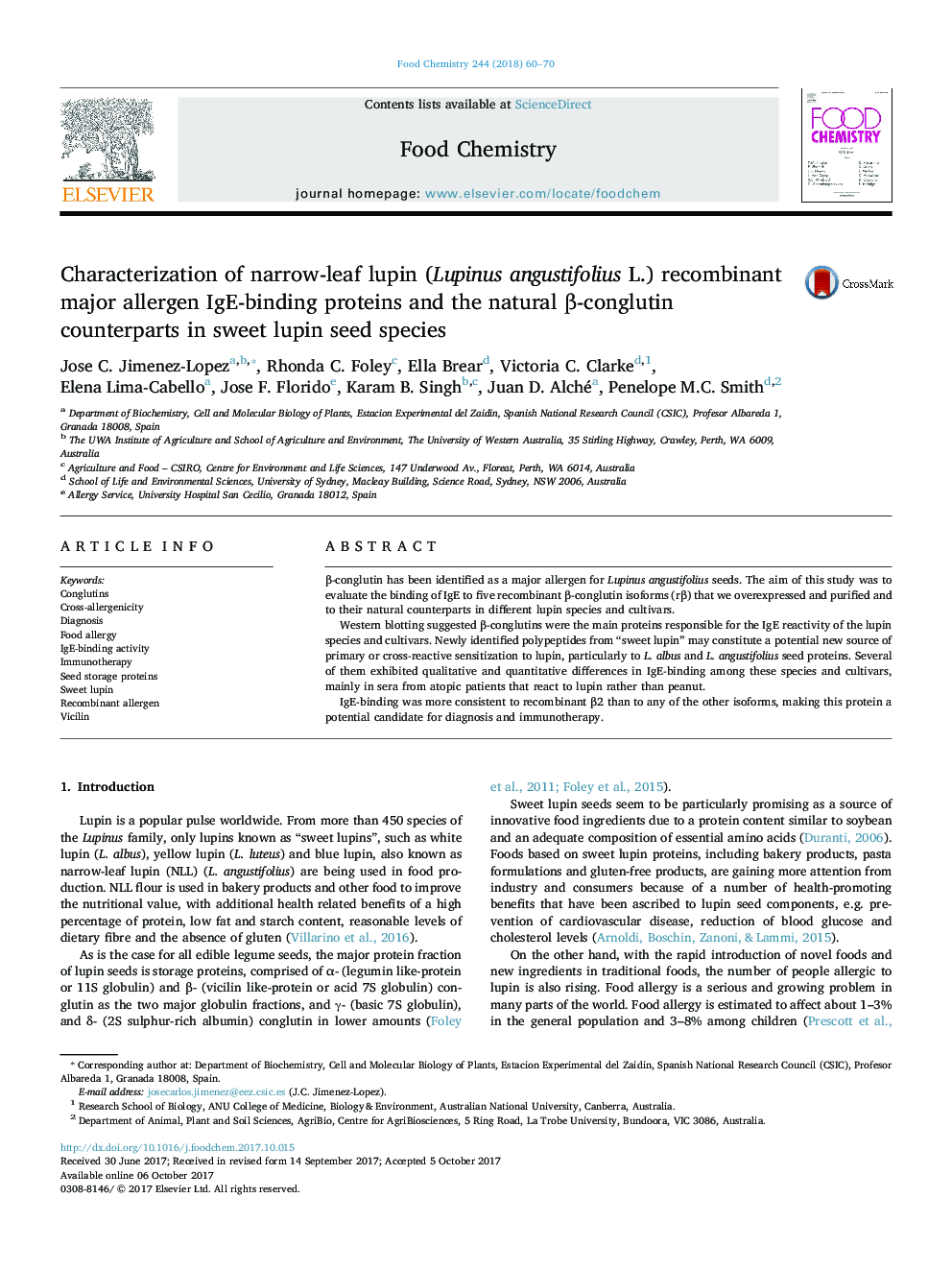| Article ID | Journal | Published Year | Pages | File Type |
|---|---|---|---|---|
| 5132389 | Food Chemistry | 2018 | 11 Pages |
â¢Several newly identified polypeptides may constitute a new source of sensitization to lupin.â¢Sera of lupin allergic patients exhibited differential IgE binding to lupin species and cultivars.â¢IgE-binding capacity to five recombinant β-conglutin (rβ) isoforms was examined and compared.â¢rβ2 may be a suitable candidate for diagnosis and immunotherapy to lupin allergy.
β-conglutin has been identified as a major allergen for Lupinus angustifolius seeds. The aim of this study was to evaluate the binding of IgE to five recombinant β-conglutin isoforms (rβ) that we overexpressed and purified and to their natural counterparts in different lupin species and cultivars.Western blotting suggested β-conglutins were the main proteins responsible for the IgE reactivity of the lupin species and cultivars. Newly identified polypeptides from “sweet lupin” may constitute a potential new source of primary or cross-reactive sensitization to lupin, particularly to L. albus and L. angustifolius seed proteins. Several of them exhibited qualitative and quantitative differences in IgE-binding among these species and cultivars, mainly in sera from atopic patients that react to lupin rather than peanut.IgE-binding was more consistent to recombinant β2 than to any of the other isoforms, making this protein a potential candidate for diagnosis and immunotherapy.
